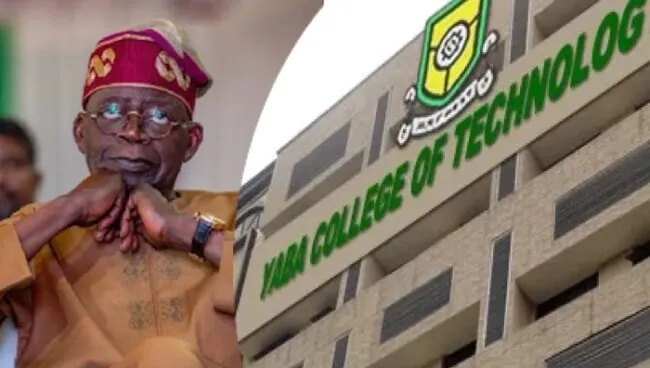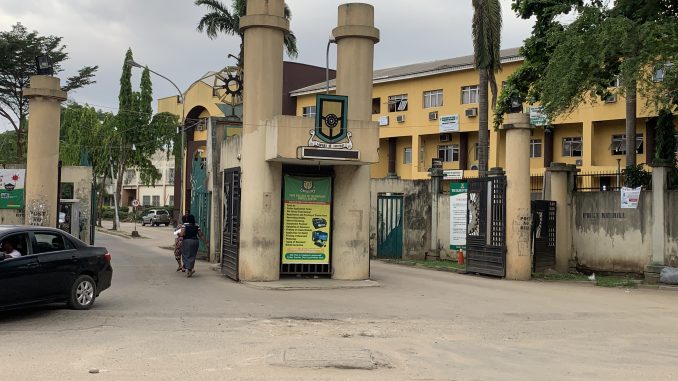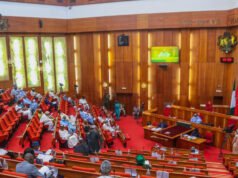In a notable turn of events, the National Association of Polytechnic Students (NAPS) has publicly endorsed the Federal Government’s initiative to transform Yaba College of Technology (YABATECH) into a technical and vocational university. The announcement, made during a fact‑finding delegation to the institution’s Council Chamber, underscores a shift in student sentiment that marks a significant phase in the ongoing conversion debate.
Table of Contents

From Surprise to Support: NAPS’s Changing Position
Initially, NAPS adopted a cautious stance. Their National President, Comrade Eshofune Oghayon, admitted that news of the conversion took many by surprise:
“YABATECH is one institution we believe has a complete and functional structure… we were worried that turning it into a conventional university could undermine its unique identity…”
However, after detailed dialogue with the institution’s leadership, students signalled a clear shift. They stressed their support for the premise of the transition—but with one key caveat: meaningful stakeholder engagement. NAPS advocated that while they “are not against advancement”, they expect their perspectives to be integrated into the planning process from the outset.
Presidential Approval and Ministerial Oversight
The conversion plan is anchored by the approval of President Bola Tinubu. During a February visit to the college, Education Minister Tunji Alausa confirmed that the president had swiftly endorsed the transition after discussions with YABATECH officials. He noted that the institution had over 200 staff with doctoral degrees—clear evidence of its readiness to bear university status.
President Tinubu’s decision was described as both timely and decisive. Alausa remarked that he was awaiting formal documentation, signaling that administrative protocols were already underway.
Legislative Backing: The Yaba Tech University Bill
Formal legislative validation is progressing. In May 2025, Nigeria’s Senate passed the second reading of the bill to convert YABATECH into a university that would be officially named Yaba Federal University of Technology and Vocational Studies.
Senate Leader Opeyemi Bamidele emphasised that this bill institutionalises the presidential fiat. It aims to cast YABATECH as a “flagship centre” for technical, management, and business education across Nigeria, with plans to emulate global powerhouses like MIT.
Deputy Senate President Barau Jibrin, who chaired the session, commended the institution’s track record and urged full support for the bill through the legislative process. It was formally referred to the Senate Committee on Tertiary Institutions and TETFUND for further legislative input, with a directive to report within four weeks.

Institutional Readiness: Voices from YABATECH
YABATECH leadership echoed confidence in the institution’s preparedness. Rector Dr. Ibrahim Abdul underlined the over 200 doctorate‑holding staff as evidence of the institution’s capability to function effectively as a university. He emphasised that the institution aspires not just to be a university, but to become a hub of technical innovation and vocational research expertly aligned with Nigeria’s growth needs.
Prof. Funso Afolabi, Chairman of the Governing Council, urged the Federal Government to extend robust support during the transition. Earlier, prominent Nigerian philanthropist Folorunsho Alakija had extolled YABATECH’s legacy and argued that the transformation was “long overdue.”
Students’ Perspective: Strategic Concerns and Aspirations
During their visit, the NAPS delegation highlighted specific concerns on behalf of the wider student community. While they welcomed the prospect of an upgraded institution, their main demand was that student voices are consulted meaningfully in curriculum design, administrative reorganisation, and vocational training strategy.
Previously, NAPS had opposed such transitions, concerned that polytechnics would lose their practical, industry‑oriented focus. They advocated instead for stronger recognition of the Higher National Diploma (HND) and transformation of the National Board for Technical Education into a full Polytechnic Education Commission. This, they argued, would align Nigeria with international models seen in Germany, Canada, the UK, and China.
The fact that students have now endorsed the conversion—albeit conditionally—signals a nuanced shift: one that supports the evolution of educational status but stresses that the core identity of practical technical education must be preserved.
What Changes With University Status?
If ratified, the conversion would cause several institutional changes:
- All existing facilities, staff, and infrastructure would be inherited by the new university, with no interruption to operations.
- Current employees’ and retirees’ benefits would transfer seamlessly to the new university structure.
- A broader academic mandate would be embraced, stronger emphasis on technical research, expanded vocational programmes, and greater alignment with national economic needs.
The Senate’s framing of the bill also envisions outreach units—extra‑mural departments, new faculties and research institutes—that extend the university’s impact and reach.
Broader Significance for Nigerian Technical Education
The proposal comes amid wider debates about the future of technical education in Nigeria:
- Critics worry that converting polytechnics into universities could dilute their practical training mandate.
- Supporters counter that upgrades bring global recognition, promote innovation, and better equip graduates for high‑tech industries and remote work opportunities—especially in areas like AI, robotics, and software development, which align with the Tinubu administration’s vision of combating “Japa Syndrome.”
As it stands, YABATECH already holds a respected history: founded in 1947 as Nigeria’s first higher education institute, with thousands of graduates impactful across engineering, management, technology, and entrepreneurship sectors.
Looking Ahead: What’s Next?
For Students: With NAPS endorsing the transformation—while demanding structured inclusivity—it will be critical for student representatives to remain engaged during curriculum redesign and vocational programme planning.
For Lawmakers: The bill awaits further vetting by the Senate committee on tertiary education and TETFUND. Observers expect a report within the next four weeks, after which it will advance to final readings.
For YABATECH Community: Institutional leaders must spearhead the transition process, ensuring transparency in governance, smooth transfer of staff and pensions, and retention of vocational excellence.
For the Nation: The move signals a broader strategic pivot toward building high‑impact, technically sophisticated universities that can fuel economic innovation, prevent brain drain, and support Nigeria’s roadmap toward becoming one of the world’s top economies.

Summary Table
| Stakeholder | Position | Key Expectation |
|---|---|---|
| NAPS (Students) | Conditional support | Legal framework to formalise conversion |
| Federal Government | Full endorsement; presidential approval confirmed | Legislative backing and smooth institutional transition |
| Senate | Bill cleared second reading; committee involvement | Originally opposed to poly-to-university conversion |
| YABATECH Management | The institution is ready in academic and staff capacity | Ensure vocational identity and research excellence continue |
| Critics (Poly Students) | The institution ready in academic and staff capacity | Inclusion in planning and preservation of the polytechnic ethos |
Conclusion
The endorsement by students, coupled with presidential approval and legislative progress, signals a pivotal moment for Yaba College of Technology. As discussions shift from opposition to strategic transformation, the challenge lies in preserving the institution’s legacy while evolving into a modern, globally competitive Yaba Federal University of Technology and Vocational Studies. With active student engagement, transparent planning, and legislative oversight, the transition could set a precedent for vocational education reform across Nigeria.
Join Our Social Media Channels:
WhatsApp: NaijaEyes
Facebook: NaijaEyes
Twitter: NaijaEyes
Instagram: NaijaEyes
TikTok: NaijaEyes
READ THE LATEST EDUCATION NEWS





